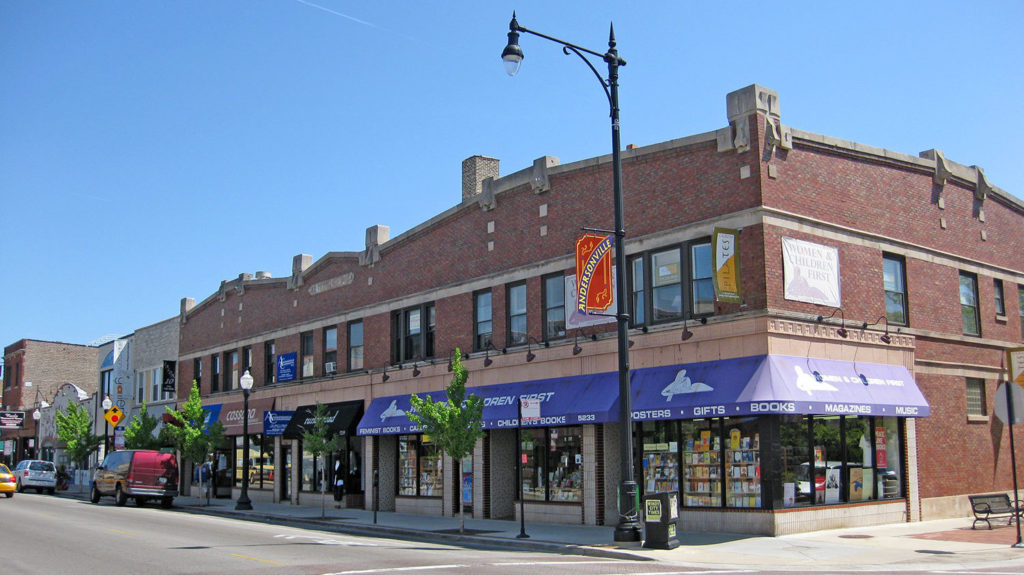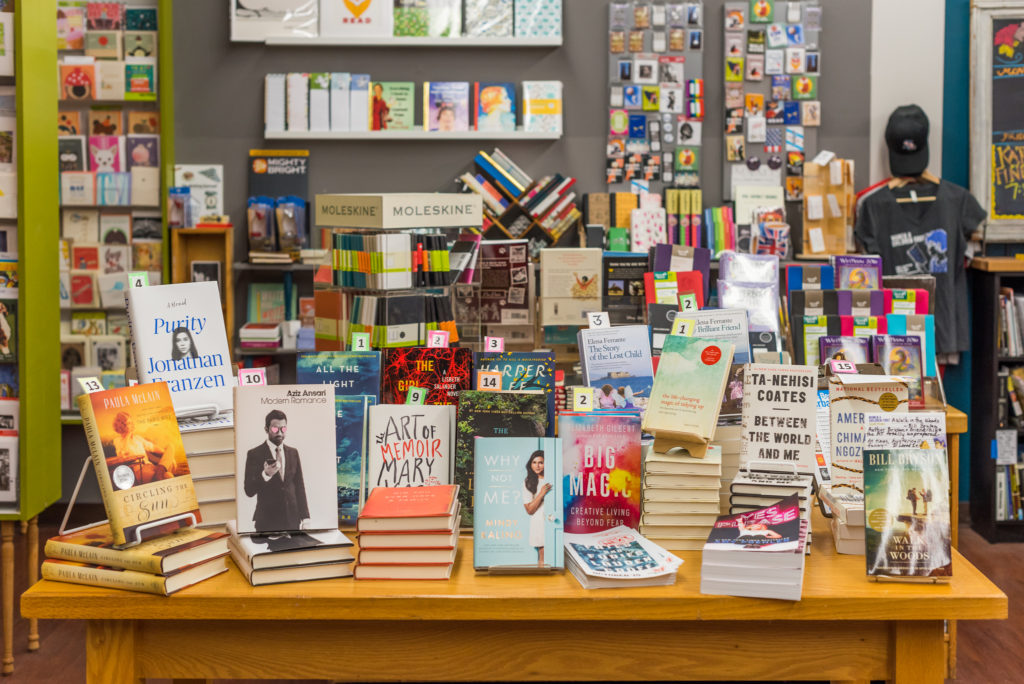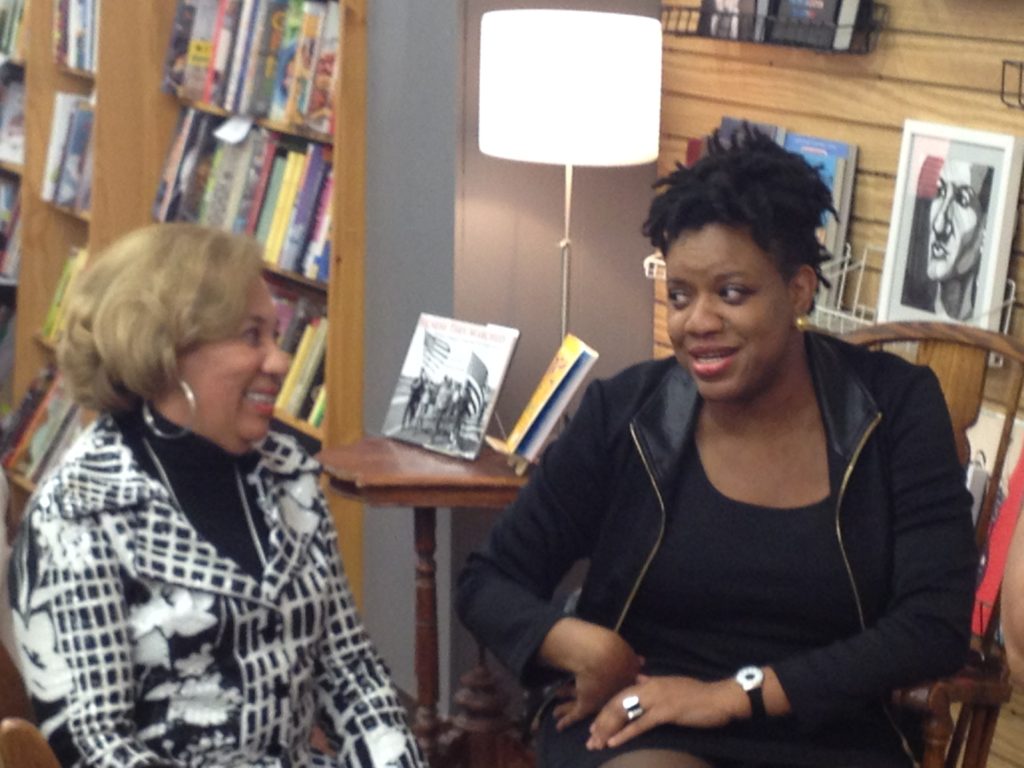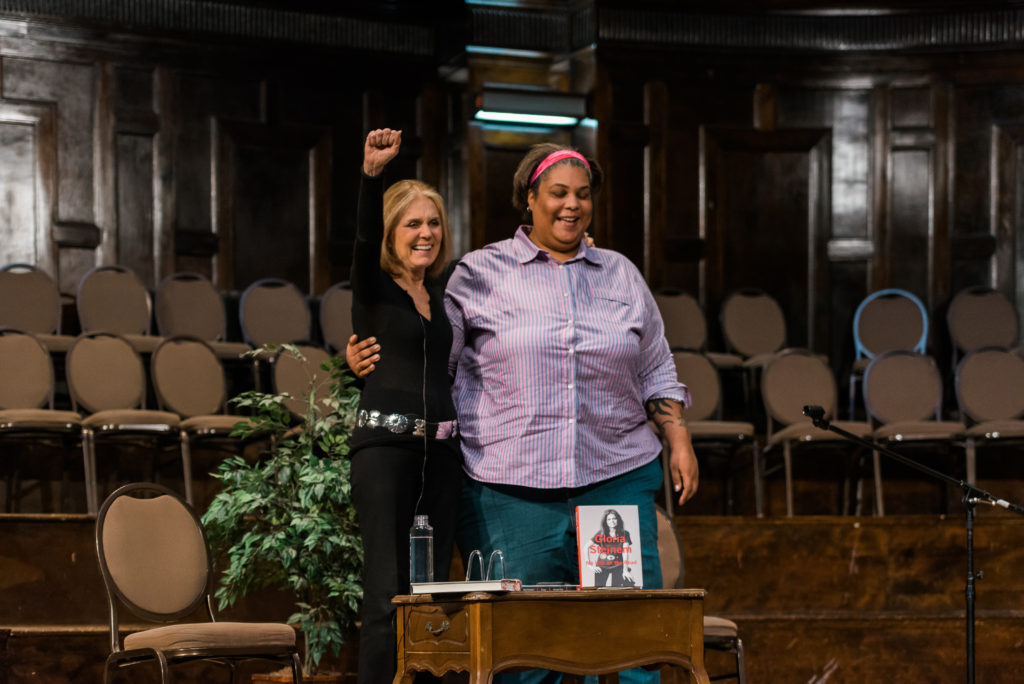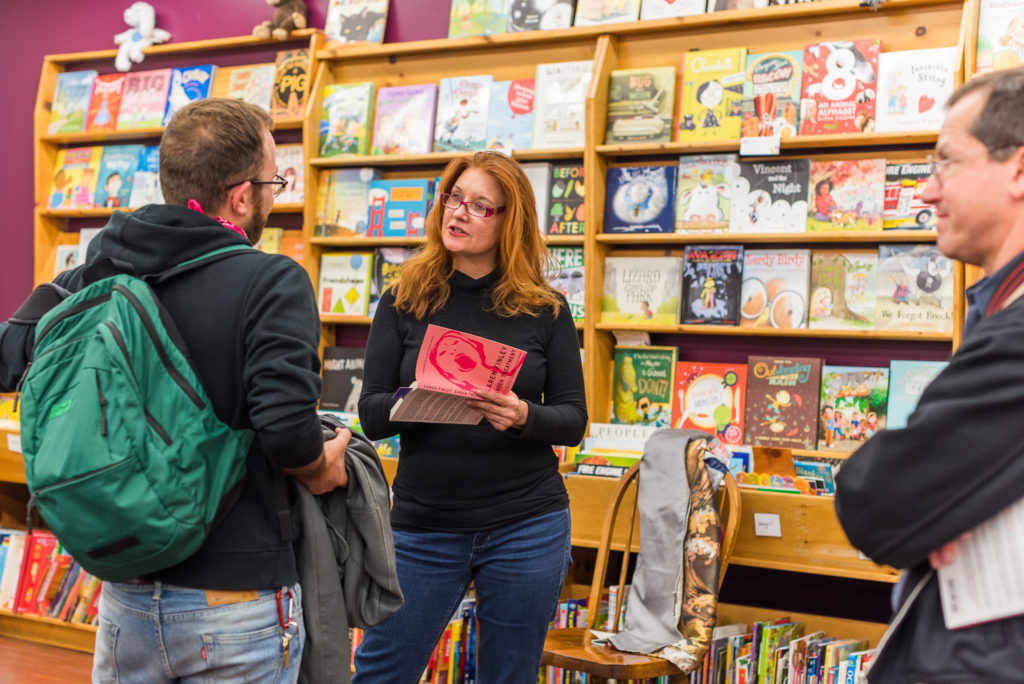Indie Bookstore Love: Women & Children First!
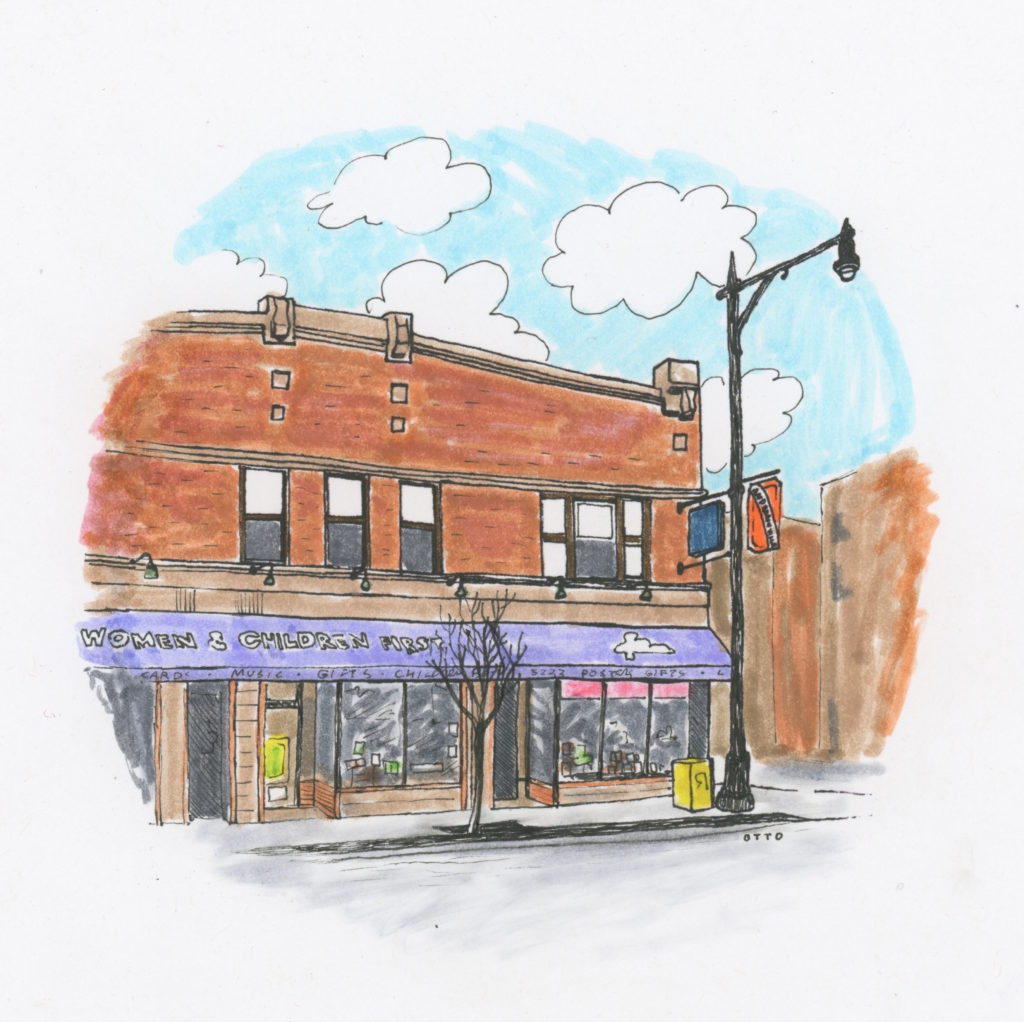
All year, Microcosm is celebrating our 20th anniversary by putting the spotlight every month on a different independent bookstore that we love! Our indie bookstore heart in September goes out to iconic Chicago feminist bookstore Women & Children First—you can find them (and many woman-penned Microcosm books on their shelves!) at 5233 N Clark St. After they hosted the book launch party for Threadbare this spring, we asked them to partner with us for this month. Co-owner Sarah Hollenbeck sat down to answer our questions over email:
1. Tell me about Women & Children First. What is the store’s history? How did it get its name?
In the 1970s, Ann Christophersen and Linda Bubon met while earning masters degrees in English at the University of Illinois at Chicago. Time and time again they would come across a woman writer they wanted to study, such as Virginia Woolf, Kate Millet, and Edith Wharton, only to discover their work was not available. Second-wave feminism was in full force, and activists around the country were starting collectives and businesses of all kinds, including feminist presses and bookstores. It was against this backdrop that Ann and Linda decided that how they would support themselves would also be their contribution to the women’s movement.
In the fall of 1979, in its original storefront on Armitage Avenue, Women & Children First opened its doors. The store’s mission was to promote the works of women writers and offer a welcoming community for all women. From the beginning, the store was committed to offering a wide range of programs, focusing on feminist and LGBTQ politics and culture. We are in a different, larger location now that’s in a more bustling section of Chicago, but our mission remains the same.
2. How did you personally get involved in books and bookselling? What is your favorite part of what you do?
I started bookselling part-time at Borders while earning my MFA in creative nonfiction writing at Northwestern University. I would later move on to work part-time at Barnes & Noble. While I had many issues with the corporate structure and impersonal environment of both of those stores, being surrounded by books all day was heaven. I always hoped that I’d one day work at indie bookstore. I never dreamed I would co-own one!
My favorite part of my current job is helping to promote the work of local and emerging authors whose work I truly admire. What I didn’t realize until recently is that booksellers have so much power in terms of shaping trends in publishing depending on what they choose to handsell. Everyone at our store is committed to handselling books by a more diverse array of authors—not only women authors, but authors of color and queer authors. We love encouraging our customers to be more mindful of reading authors whose culture or identity differs from their own. Listening to marginalized voices is integral to making the planet a kinder, more empathetic place.
3. Do you have a favorite Microcosm book and/or zine? What about other books generally, what are you most into reading right now?
Definitely Threadbare by Anne Elizabeth Moore and Learning Good Consent by Cindy Crabb. Our Social Justice Book Group is reading The New Jim Crow this month and I hope to finally finish it by then! I read a lot of memoir and essays, but I also can’t resist dark, character-driven, contemporary novels. Two of my favorite books that I read recently are Shrill by Lindy West and The Telling by Zoe Zolbrod.
4. How is the role of the feminist bookstore different and/or the same now as it was in, say, the 1970s? What is the future of feminist bookselling, or what do you dream it will be?
I believe we’ve built upon and strengthened our commitment to intersectionality. Feminist bookstores have always had a responsibility to actively challenge the traditional gender binary. Today, I believe we are more inclusive when it comes to trans, genderqueer, and non-binary identities.
Moving forward, my goal is to generate more effective strategies to have productive conversations with folks beyond our politically progressive base. We have a tremendously loyal community and I adore every single person who supports our bookstore. It can feel deeply empowering and exhilarating to have a passionate conversation with someone who shares your values and philosophy. However, when I read the news or travel outside of our largely like-minded feminist community, I often worry that I have become dangerously insulated. How do we begin meaningful dialogue—not shouting matches or Twitter fights—with those whose worldviews differ from our own? That’s what’s on my mind when I look to the future.
